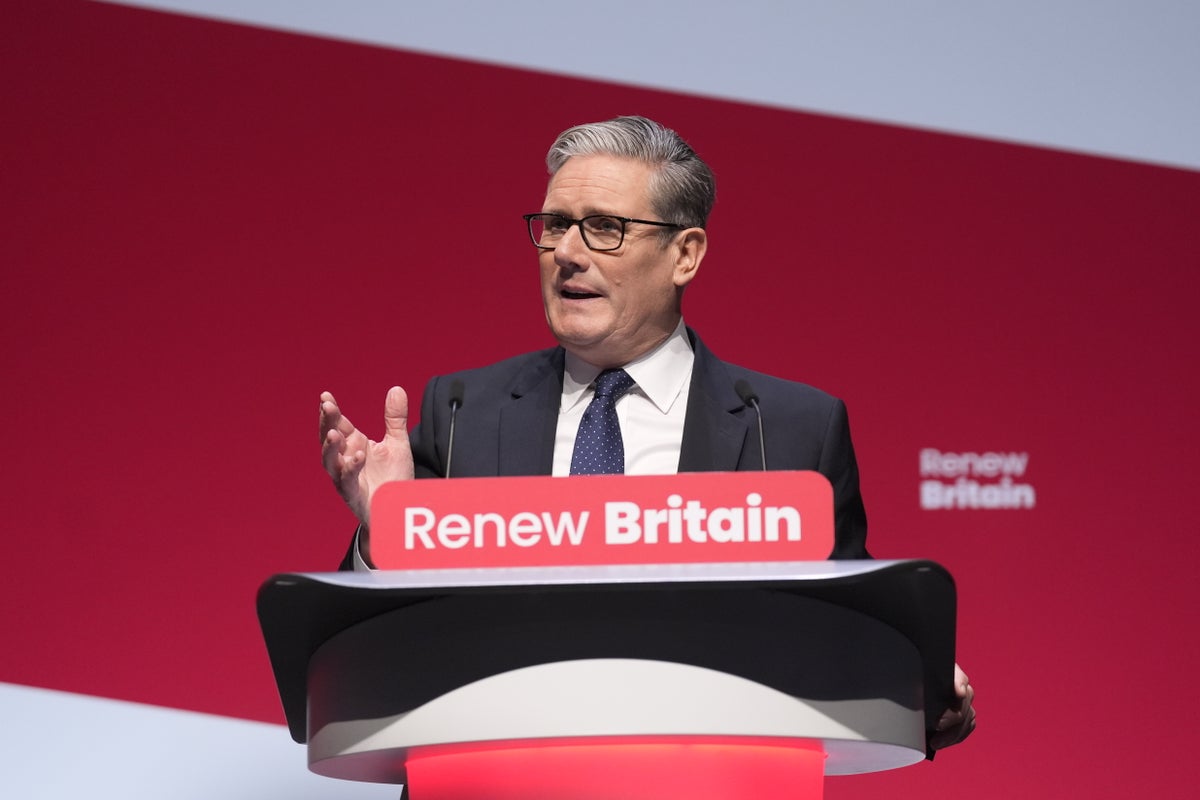It is often said that the best way for a politician to succeed is not by defining who they are but by defining their enemies.
It worked for Margaret Thatcher with her stated ‘enemy within’ – as she called miners leader Arthur Scargill.
It worked for Tony Blair with his chosen enemy Saddam Hussein – until we found out Saddam’s threat was grossly exaggerated.
After a disappointing first 14 months in Downing Street, Sir Keir Starmer is trying to revive his fortunes at this week’s Labour conference with a similar tactic.
In describing Nigel Farage and Reform as “the enemy” and “racists” who would “rip Britain apart” he has deliberately raised the political temperature.
There are many who will applaud him for this.
Regardless of what they tell pollsters in between elections, when British voters mark their cross on a real general election ballot paper, the winning party invariably comes from close to the centre, not one seen as extreme.
If, as seems likely, Reform pose the biggest challenge to Labour at the next election, Starmer figures the best way to deter people from voting for them is to demonise Farage as a latter day Oswald Mosley.
How many decent upright Britons, concerned as they may be over immigration and the small boats crisis, would vote for a party with such a reputation?
The answer is not many.
Moreover his calculation is that the apparent eclipse by Reform of Labour’s main traditional enemy, the Tories, may actually be to his advantage – to be encouraged even.
If Labour can present itself as the only viable Centre party, in a straight fight with Reform, Starmer could win – in a variation of the ‘devil you know’ argument.
With this in mind, Starmer is currently engaged in a virtual tug of war with Farage over the Union Flag and rarely gives No 10 interviews without one in the background to prove who is the real ‘patriot.’
But this tactic is not without hazard.
Starmer must be careful not to demonise the people who support Reform.
If the polls are right they account for around one in three of the adult population, not far short of 20 million people.
Hillary Clinton was forced to make a grovelling apology in the 2016 US election after calling Donald Trump’s supporters ‘deplorables’ as part of her charge against him of ‘bigotry and racist rhetoric.’
She duly lost.
Wisely, Starmer has been more careful in his language, but the danger remains.
Meanwhile he has also come out fighting against the enemy within he faces from the Left in the form of Labour Mayor for Manchester, ex cabinet minister Andy Burnham.
Starmer seized on what he sees as a major error by Burnham in advocating a multi billion pound boost in public spending, arguing that governments should cease to be ‘in hock to the bond markets.’
Starmer said it would lead to a repeat of Liz Truss’ disastrous policies.
His personal attacks on Farage and Burnham in the space of a few days are out of character with his normal cautious lawyerly approach.
To judge from the pre-conference interview he gave to the BBC’s Laura Kuennsberg, he has been told to up his game by injecting greater dynamism and passion in his foggy nasal voice.
It sounded less than authentic.
For all his political flaws, Farage is a more convincing John Bull caricature than Starmer will ever be.
Nor will he ever come close to ‘King of the North’ Burnham’s street cred.
No one voted for Keir Starmer at the last election because of his charisma.
They did so because they believed him when he said he would change things for the better and clear up the mess left by the Tories.
If he wants to have any chance of staying in power he will need to overcome a bigger enemy: his failure to do this so far.

